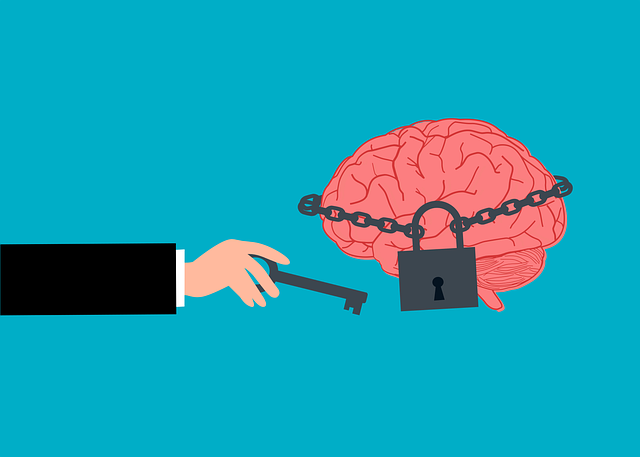Broomfield Cognitive Behavioral Therapy (CBT) is an evidence-based, goal-oriented coaching approach that targets negative thought patterns and behaviors, promoting improved mental wellness. By integrating CBT with other modalities in a holistic program, coaches can help clients manage stress, develop coping skills, and build resilience through structured sessions emphasizing self-reflection, cognitive restructuring, mindfulness, and problem-solving. Regular evaluation using BCBT principles ensures program effectiveness and cultural sensitivity, leading to enhanced life satisfaction and long-term well-being for diverse populations.
In today’s fast-paced world, prioritizing mental wellness is paramount. This article explores the development of effective mental wellness coaching programs inspired by Broomfield Cognitive Behavioral Therapy (CBT), a evidence-based approach focusing on identifying and changing negative thought patterns. We’ll delve into key components for designing comprehensive coaching programs, strategies for integrating CBT techniques in sessions, and methods for evaluating and enhancing program effectiveness.
- Understanding Broomfield Cognitive Behavioral Therapy (CBT) and Its Principles
- Designing a Comprehensive Mental Wellness Coaching Program
- Implementing CBT Techniques in Coaching Sessions
- Evaluating and Enhancing the Program's Effectiveness
Understanding Broomfield Cognitive Behavioral Therapy (CBT) and Its Principles

Broomfield Cognitive Behavioral Therapy (CBT) is a structured and goal-oriented approach to mental wellness coaching that focuses on identifying and changing negative thought patterns and behaviors. It’s based on the principle that our thoughts, feelings, and actions are interconnected, and by modifying these thought patterns, individuals can experience significant improvements in their overall well-being. CBT emphasizes the importance of understanding and challenging distorted thinking, a process that involves self-reflection and acquiring effective coping strategies.
This therapeutic method teaches clients practical skills to manage various mental health challenges, including anxiety relief and stress reduction. It incorporates empathy-building strategies, encouraging coaches to actively listen and understand their client’s perspectives without judgment. By fostering a supportive environment, CBT enables individuals to develop self-care practices tailored to their unique needs, promoting long-lasting positive changes in their lives.
Designing a Comprehensive Mental Wellness Coaching Program

When designing a comprehensive mental wellness coaching program, it’s crucial to integrate evidence-based practices that address a wide range of psychological needs. Broomfield Cognitive Behavioral Therapy (CBT) can serve as a foundational technique, empowering individuals to identify and challenge negative thought patterns. By combining CBT with other therapeutic modalities, coaches create a holistic approach that caters to diverse mental health concerns. This includes incorporating strategies for stress management, emotional regulation, and coping skills development, which are all essential elements of fostering resilience and inner strength.
A well-rounded program should also factor in community outreach and support networks, as social connections play a vital role in an individual’s mental wellness journey. Encouraging clients to engage with their communities can provide opportunities for enhanced support, increased social interaction, and a sense of belonging—all contributors to improved overall mental health. This holistic perspective ensures that participants not only gain tools for managing their current challenges but also develop the inner strength necessary to navigate life’s inevitable ups and downs.
Implementing CBT Techniques in Coaching Sessions

Incorporating Broomfield Cognitive Behavioral Therapy (CBT) techniques into coaching sessions offers a powerful approach to enhancing mental wellness. CBT focuses on identifying and modifying negative thought patterns and behaviors, empowering individuals to take control of their emotional well-being. Through structured coaching, professionals can guide clients in exploring these thought processes and replacing them with healthier alternatives. By teaching skills like cognitive restructuring, mindfulness, and problem-solving, coaches enable clients to better manage stress and improve mood regulation.
Effective CBT techniques in coaching sessions foster empathy building strategies, creating a safe space for individuals to express their struggles openly. This supportive environment encourages self-reflection, allowing clients to gain insights into their emotional triggers and develop coping mechanisms tailored to their unique needs. By combining the principles of Broomfield CBT with empathetic coaching methods, professionals can significantly contribute to their clients’ journey towards improved mental wellness and overall life satisfaction.
Evaluating and Enhancing the Program's Effectiveness

Evaluating the effectiveness of mental wellness coaching programs is paramount to ensure their success and positive impact on clients’ lives. Using evidence-based methods like Broomfield Cognitive Behavioral Therapy (BCBT), coaches can assess changes in symptoms, client satisfaction, and behavioral outcomes over time. Regularly gathering feedback from participants allows for refining the program, addressing any gaps, and enhancing overall quality.
Integrating Cultural Sensitivity in Mental Healthcare Practice is crucial to cater to diverse populations effectively. By considering mental health Policy Analysis and Advocacy, coaches can navigate systemic barriers and ensure equitable access to care. Additionally, providing Crisis Intervention Guidance within coaching sessions equips individuals with coping strategies for acute distress, fostering resilience and long-term well-being.
Broomfield Cognitive Behavioral Therapy (CBT) offers a powerful framework for mental wellness coaching programs. By understanding its principles and applying CBT techniques, coaches can design comprehensive sessions that effectively support individuals in managing their mental health. Regular evaluation and enhancement of the program’s effectiveness ensure its continued relevance and impact. Integrating these strategies fosters a tailored approach to coaching, ultimately promoting positive mental well-being.














